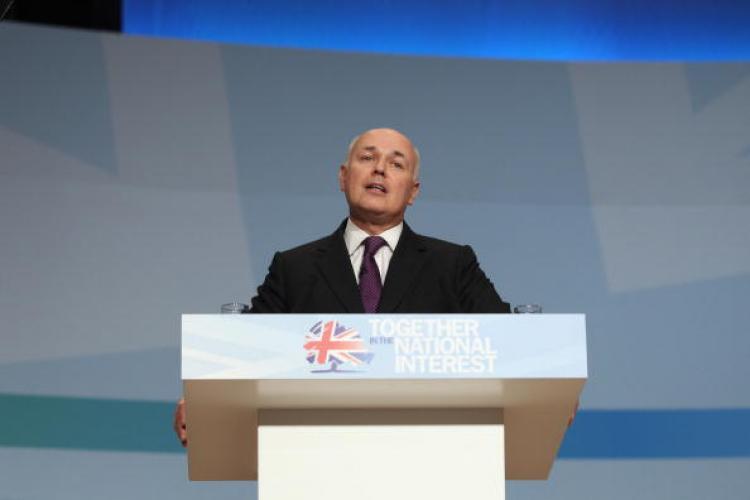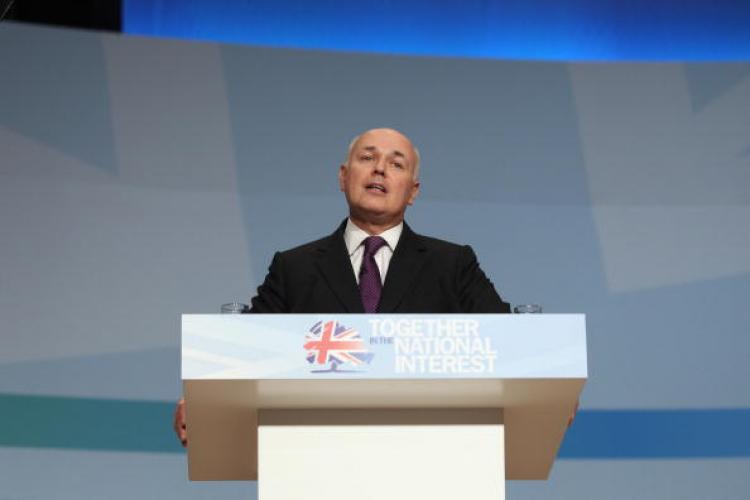Incapacity Benefit: UK Government Test New Benefits System
With the biggest cuts to UK public services since before WWII, the UK government is eying the money paid to those deemed unfit to work.

Incapacity Benefit is part of the Universal Credit set out by British Work and Pensions Secretary, Iain Duncan Smith, at the Conservative Party Conference on Oct. 5, 2010 in Birmingham, England.
|Updated:





